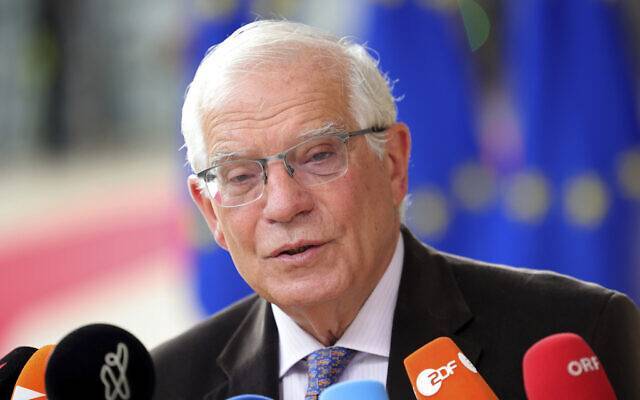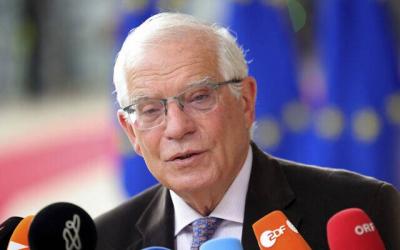Josep Borrell, the EU foreign policy chief, presented proposals today regarding the management of the Gaza Strip in the post-war period following the conflict between Israel and Hamas. He called on Arab nations to play a larger role in Palestinian governance of the territory in the future.
Borrell, who is heading to Israel, the Palestinian territories, and other neighboring countries this week, emphasized the need to consider what will happen after the war, even as fighting continues. He stated that the international community has failed "politically and morally" to reach a lasting settlement to the long-standing Israeli-Palestinian conflict, and that the time has come to strengthen efforts toward a two-state solution.
Speaking to journalists after a meeting of EU foreign ministers in Brussels, Borrell outlined his proposals, which include opposing three things and supporting three others. He opposed any forced displacement of Palestinians from Gaza, any permanent return of the Israeli army to occupy the territory, and any alteration of its borders, along with opposing the return of Hamas.
He asserted that there should be a "Palestinian Authority," proposing it to be an "enhanced" version of the current Palestinian Authority that governs the West Bank, with legitimacy defined and determined by the UN Security Council. Borrell urged Arab countries to actively participate in supporting this Palestinian Authority and stressed that the EU needs to engage more in the region, especially in establishing a Palestinian state.
He stated, "There will be no solution without strong commitment from Arab countries, and it cannot be limited to financial support. They cannot just cover... the costs of physical reconstruction." He added, "There must be a political contribution to building a Palestinian state."
While the EU does not play a prominent diplomatic role in the current crisis, it holds some influence in the region, particularly as the largest aid donor to the Palestinians. Borrell remarked, "We have been absent for too long. We have delegated the resolution of this problem to the United States... but Europe must engage more."




